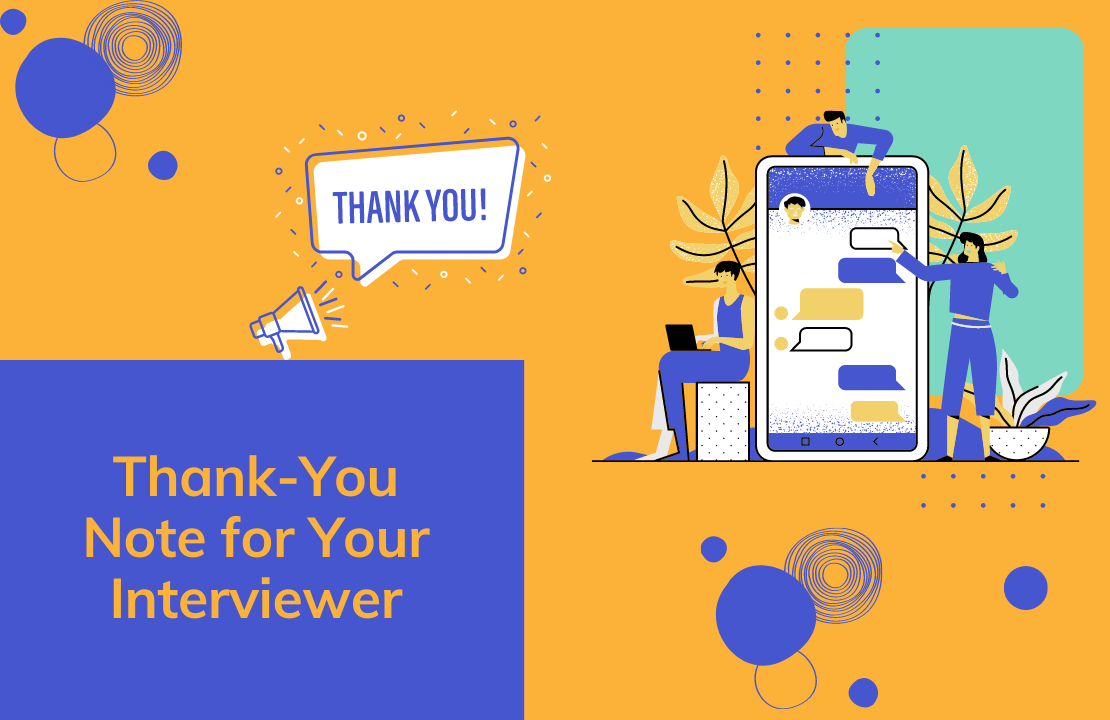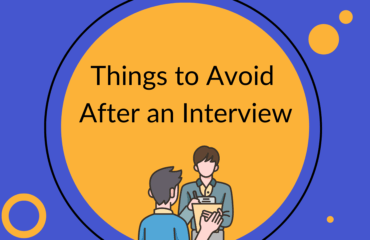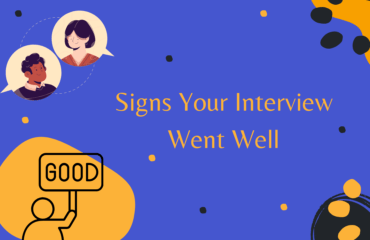Table of Contents
You have just finished an interview for your dream job, and you feel confident about your performance. Now you want to shield that impression and maximize the chances of getting an offer. But how? There’s still one simple move to make to convince the hiring team that you’re the best candidate for the position. It’s the so-called interview follow-up email.
An interview follow-up email, also known as a thank-you note, is a letter you can send to your interviewers to thank them for their time and maintain a good spirit after meeting them. You can capitalize on what you’ve discussed and explain why you’re a good fit for the role. Overall, it’s a great opportunity to connect with them once more, showing that this position matters to you.
Why you should send an interview follow-up email
There are lots of reasons why you should craft this type of email. First off, it increases your chances of landing your dream job. By sending an email to the interviewers, you show your enthusiasm and interest in the role. This is even more powerful after you’ve met with them in person, as you have more clues about the job and why it suits you and more tangible evidence to prove it.
Apart from that, it’s a good chance to showcase your communication skills to the interviewers. Abilities such as relationship management, effective communication, and professional networking are huge assets for most jobs. Hence, writing an effective follow-up email will add a positive note to your interview performance.
When to send a thank-you note
Here are the three different situations you may find yourself in before sending those emails:
- To follow up after an interview for a job you desire.
- To check-in progress, if you did not receive a response.
- To build rapport in case you did not get the job or you accepted another offer.
If you belong in the first category, it’s best to send this email within 24 hours after your interview. If you want to check in with a company you’ve recently interviewed for, it’s better to contact them approximately one week after the interview. If they have given you a response deadline, avoid following up before the deadline.
No matter how hard you’ve prepared for an interview, sometimes you may get rejected for a role. In this case, we strongly recommend replying to the hiring team to thank them for the opportunity and the information they shared with you. This way, you create a positive connection with the company and add them to your valuable network.
Plus, if you decide to accept a competitive offer from another employer, it’s essential to inform them about it. In brief, avoid burning bridges because you may seek a better role at the company you’re currently rejecting in the future. So grab this opportunity to network and create mutually beneficial relationships.
How to write a successful interview follow-up email
Are you ready to write and send that email? Here are some excellent guidelines to create a thank-you note that will draw the interviewer’s attention. You can also move to the last section to find some ready-made examples.
1. Define the email goal
To write a successful follow-up email, you should first determine what exactly you want to achieve through it. Which of the scenarios we mentioned above are you facing? Determining the real purpose of that email will enable you to choose the right email storytelling and arguments to present. Make sure to keep the messaging concise and to the point.
2. Write a clear subject line
The email subject line is the first thing the recipient will see in their inbox. Keep in mind that a recruiter receives lots of emails during the day, so the more detailed it is, the better the chances they will open it. For example, you can write something similar to “Great talking with you today.” This way, they’ll know exactly what to expect.
3. Express your gratitude and appreciation
As we’ve mentioned earlier, use this email to express your gratitude for the time you’ve spent with your potential future employer. Show them your appreciation for what they shared with you about the company and mention what you admire about them. Thus, you show them how much you value both their time and efforts.
4. Explain why you’re a good fit for the role
Apart from thanking them for the meeting you had, you can also use this email to describe once more why you’re the best candidate for this role. Avoid making vague statements. Instead, focus on providing examples to justify this opinion. For instance, you can refer to discussions you had during the interview and describe why your previous work experiences will help you adapt to this role successfully.
5. End with signature and contact information
Remember to close this thank-you letter with a professional email signature and your contact information. Plus, you can mention that you will be at their disposal for questions and clarifications if they need them. Show them that you are available to them and excited to see that professional relationship growing.
Interview follow-up email samples
Need some inspiration? Read these email examples for the different scenarios mentioned above. Feel free to use them based on your condition:
1. To follow up after an interview for a job you desire
Optional subject line: Thanks for your time.
Dear [Interviewer’s Name],
I wanted to thank you for your time earlier today. I enjoyed learning more about [Company Name] and the role of [Job Position].
I would be very excited to join a company like yours. I believe that my previous experience and knowledge would make me a great addition to your team. I have taken on similar responsibilities successfully in the past, and I feel confident that I can contribute to your mission going forward.
Please feel free to contact me in case you have further questions or need additional samples of my work.
Kind regards,
[Your Full Name]
[Your Job Title]
[Your Contact Details]
2. To check in progress, if you did not receive a response
Optional subject line: Updates regarding [Job Title] position
Dear [Interviewer’s Name],
I have recently interviewed for the position of [Job Title] at [Company Name], and I would like to ask if there has been any progress in the hiring process. I am very excited about this position, so kindly inform me if there are any updates. Thank you in advance.
Kind regards,
[Your Full Name]
[Your Job Title]
[Your Contact Details]
3. To build rapport in case you did not get the job
Optional subject line: Thank you for your update.
Dear [Interviewer’s Name],
Thank you for reaching out to me regarding the [Job Title] position to inform me about your decision. No matter the result, it was a pleasure meeting you and learning more about the company. I would highly appreciate any feedback you can share about my performance so far.
If you have similar job openings in the future that you believe I am suitable for, I will be happy to get notified about them.
Best of luck with your future endeavors!
Kind regards,
[Your Full Name]
[Your Job Title]
[Your Contact Details]
4. To build rapport in case you accepted a competitive offer
Optional subject line: Updates regarding [Job title] offer.
Dear [Interviewer’s Name],
Thank you so much for giving me this offer.
However, after careful consideration, I decided to move on with a different company. It was a hard decision to make, but I believe that it will be a better fit for me shortly.
Thanks for your time and the trust that you showed me. You have built a great company with an amazing team. I wish you all the best in your future endeavors!
Kind regards,
[Your Full Name]
[Your Job Title]
[Your Contact Details]





